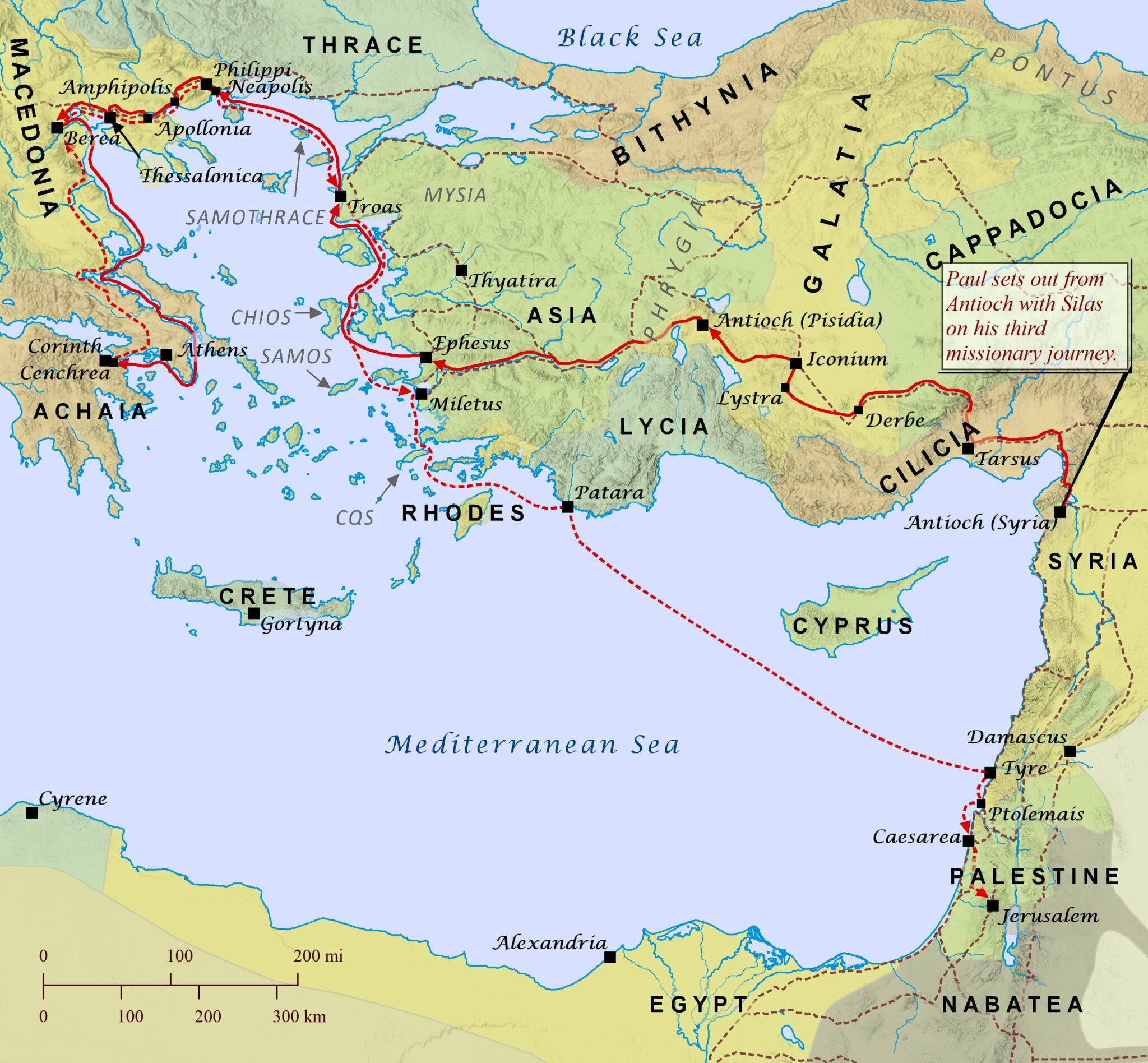Just because Gentiles have been adopted into God’s family does not mean they are superior to the children who have wandered away. Jews have rejected God, and God has taken this opportunity to save Gentiles. Gentiles are no better than the Jews. Jews are no worse than Gentiles. All of humanity needs salvation, all men are sinners.
Paul is making an analogy of the Gentiles’ relationship with Israel: Some of the branches were broken off, and you, being a wild olive, were grafted in among them and became partaker with them of the rich root of the olive tree (v 17).
The you Paul is speaking to are the Gentile Roman believers to whom this letter is addressed. In particular, these are Gentile believers whose faith is spoken of throughout the whole world (Romans 1:8). Gentile believers are like a wild olive branch that is grafted on to a domestic olive tree. The wild olive tree does not produce good fruit, but when it is grafted in among the domestic olive tree, it produces rich fruit.
One way to think of this is that when the high-achieving nature of Gentiles is tamed by Jewish thought and redirected to God’s covenant command to the Hebrews to love and serve one another, this “hybrid vigor” produces a substantial elevation of goodness that benefits the world (Leviticus 19:18; Matthew 22:37-39).
The broken off branches represent the unbelieving Jews, while the Gentiles are represented by the wild olive branches that are grafted in. The Gentiles can receive the benefits of the cultivated tree’s roots and health. But the grafted in branches need to recognize that they have not been elevated above the root, but are instead gaining sustenance from it.
The olive tree is a symbol for Israel. In the analogy, Israel is the root of the olive tree, and broken off branches represent unbelieving Jews.
Gentiles were grafted in as wild branches. In verse 18, Paul says, do not be arrogant toward the branches. The native branches are the Jews. Gentiles have nothing to brag about, nor are they superior to Israel. God redeems Gentiles through His grace, and He also has plans for Israel’s restoration through His grace.
Gentiles are grafted into Israel. They are grafted into the promises God made to Israel. Christianity is not a separate thing from God’s relationship with the Jews. It is an expansion of Judaism and a continuation of the unfolding of God’s promises. The promise Gentile believers have of righteousness through faith is exactly the same promise Abraham had (Romans 4:1-4; Genesis 15:6). All people of faith are children of Abraham because we are children of the promise (Romans 9:6-8).
Paul urges that his Roman audience continue to respect the Jews. He tells the Gentiles that if you are arrogant, remember that it is not you who supports the root, but the root supports you (v 18).
In this letter, Paul is answering competing Jewish “authorities” who are slandering him and saying that he is teaching a false doctrine (Romans 3:8). But these competing “authorities” are actually teaching false doctrine, and Paul is rejecting their doctrine.
Paul is not rejecting them. He recognizes that he is just as much a sinner as they (Romans 3:9-10).
But Paul is making it clear that Israel has not been rejected by God, as his detractors claim he is saying. Paul makes this clear elsewhere also. In Paul’s letter to the Ephesians, he says the Gentiles were “excluded from the commonwealth of Israel” but were included in that commonwealth by Jesus (Ephesians 2:12). The word translated commonwealth can also be translated “citizenship.”
Biblical Text
17 But if some of the branches were broken off, and you, being a wild olive, were grafted in among them and became partaker with them of the rich root of the olive tree, 18 do not be arrogant toward the branches; but if you are arrogant, remember that it is not you who supports the root, but the root supports you.
Check out our other commentaries:
-
Matthew 1:6a meaning
Matthew completes his first major section of the genealogy with King David. ...... -
Luke 10:36-37 meaning
Jesus asks the religious lawyer which of the three travelers was a neighbor to the injured man. The lawyer responds, “The one who showed him...... -
John 3:14-16 meaning
Jesus explains why He, God’s Messiah, has come to earth: He must die so that the world can receive eternal life. He compares himself to...... -
Deuteronomy 19:1-3 meaning
The LORD, through Moses, commanded the Israelites to set apart three cities in the Promised Land to provide asylum for unintentional homicide....... -
Romans 4:9-11 meaning
The blessing of having our sins forgiven is available to all people, whether circumcised or uncircumcised. Being circumcised or doing any good works does not......



